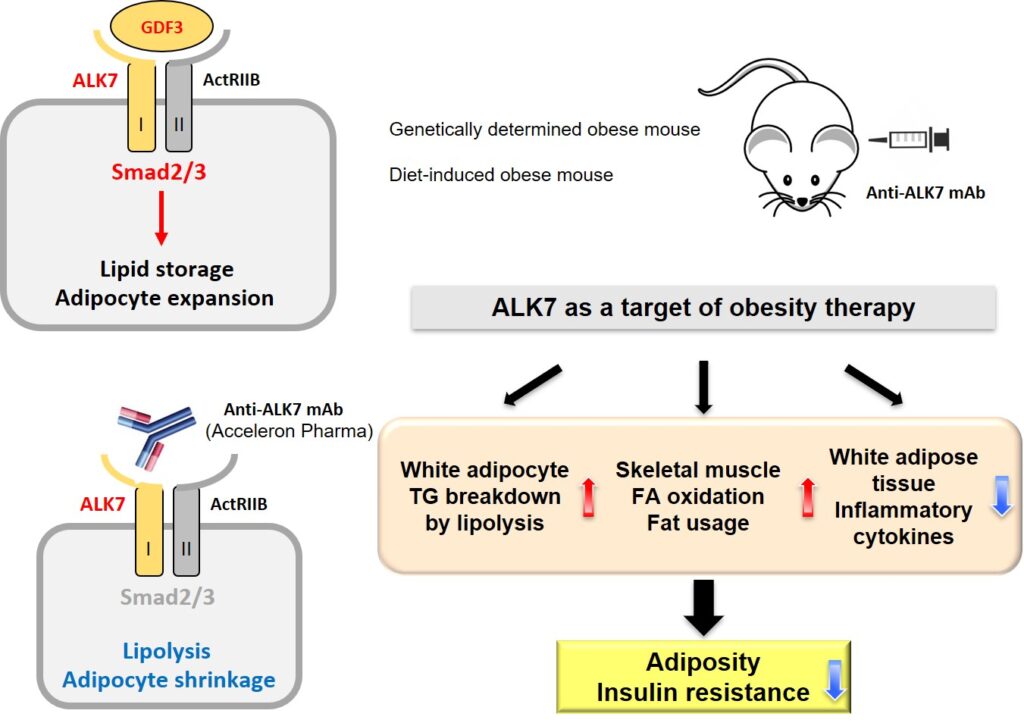Min Zhao1,#, Katsuhide Okunishi1,#, Yun Bu1,#, Osamu Kikuchi2, Hao Wang1,, Tadahiro Kitamura2, and Tetsuro Izumi1,* 1Laboratory of Molecular Endocrinology and Metabolism, 2Metabolic Signal Research Center, Department of Molecular Medicine, Institute for Molecular and Cellular Regulation, Gunma University, Maebashi 371-8512, Japan Institute for Molecular and Cellular Regulation, Gunma University, Maebashi 371-8512, Japan #: Co-first authors、*:Corresponding author
About
Activin receptor-like kinase 7 (ALK7) is a type I receptor in the transforming growth factor-β superfamily preferentially expressed in adipose tissue and associated with lipid metabolism. Inactivation of ALK7 signaling in mice results in increased lipolysis and resistance to both genetic and diet-induced obesity. Human genetic studies have recently revealed an association between ALK7 variants and both reduced waist-to-hip ratios and resistance to development of diabetes. The present study found that treatment with a neutralizing monoclonal antibody against ALK7 causes a substantial loss (40-60%) of adipose mass and improves glucose intolerance and insulin resistance in both genetic and diet-induced mouse obesity models. The enhanced lipolysis increased fatty acid supply from adipocytes to promote fatty acid oxidation in muscle and O2 consumption at the whole-body level. The treatment temporarily increased hepatic triglyceride levels, which resolved with long-term antibody treatment. Blocking of ALK7 signals also decreased production of its ligand, growth differentiation factor 3, by downregulating S100A8/A9 release from adipocytes and subsequently interleukin-1β release from adipose tissue macrophages. These findings support the feasibility of potential therapeutics targeting ALK7 as a treatment for obesity and diabetes.
Paper information
"Targeting activin receptor-like kinase 7 ameliorates adiposity and associated metabolic disorders"
JCI Insight (The American Society for Clinical Investigation). 2023 Jan 10;e161229. doi:10.1172/jci.insight.161229. PMID: 36626233
公開日:1月10日(火)(アメリカ東部標準時刻)
Online URL
https://insight.jci.org/articles/view/161229








